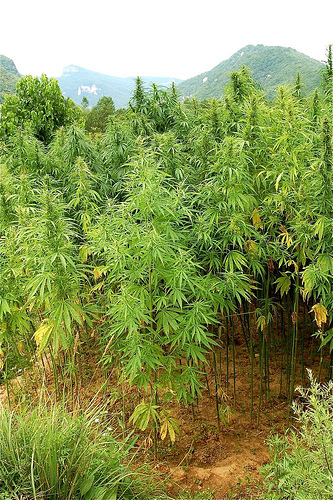
It can be used to make textiles, building materials, paper, food etc. The versatility of hemp is well-known and now it has emerged it could be explored to make biofuels too.
Researchers at the University of Connecticut in the United States recently announced that the fiber crop Cannabis sativa has properties that make it viable as biodiesel feedstock.
One of advantages of hemp is that it can grow in infertile soils, therefore it doesn’t need to compete with food crops. “For sustainable fuels, often it comes down to a question of food versus fuel,†says Richard Parnas, a professor of chemical engineering who led the study. “It’s equally important to make fuel from plants that are not food, but also won’t need the high-quality land.â€
Europe and Asia grow industrial hemp to make rope and clothing thanks to its strong stalk. The plant grows easily and requires little water, fertilizer or any high-grade inputs to flourish. So far, its seeds, which house the plant’s natural oils, are often discarded. It’s from them that Parnas says biofuel could be made.
“If someone is already growing hemp,†he says, “they might be able to produce enough fuel to power their whole farm with the oil from the seeds they produce.†A biodiesel industry would need little additional investment because a hemp industry already exists, he adds.
To probe into hemp’s biofuel potential, Parnas and his team used virgin hemp seed oil via a process called transesterification. When tested, hemp biodiesel showed a 97 per cent rate of conversion efficiency. It passed all laboratory tests and the team suspects it could be used at lower temperatures than biodiesels currently available.
The drawback is that hemp crops are still illegal in most of the United States. But the researchers hope their findings will be used to produce hemp biodiesel elsewhere. They are now preparing to build a pilot production facility with a $1.8million grant from the Department of Energy. The reactor will produce up to 200,000 gallons of biodiesel per year and will help them test news methods of production.






3 Comments